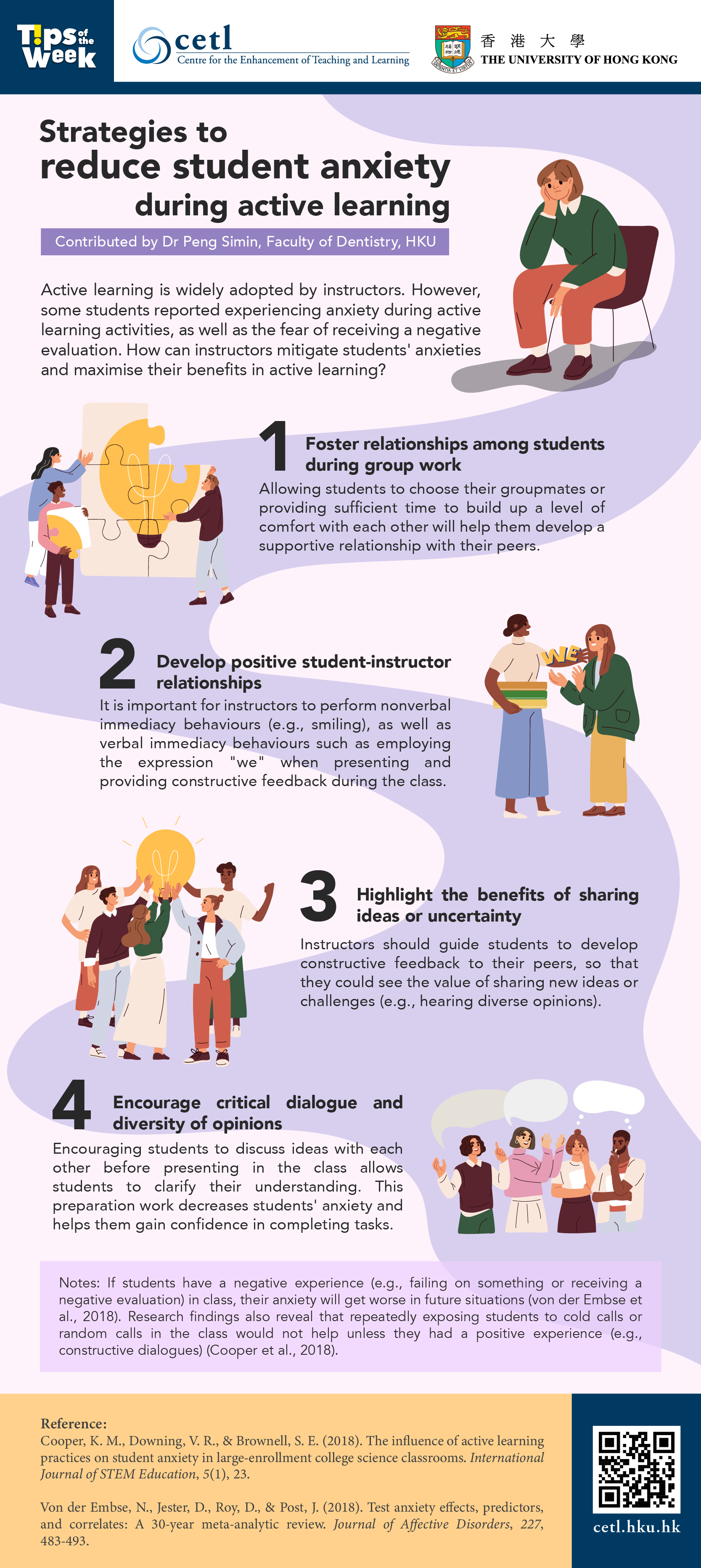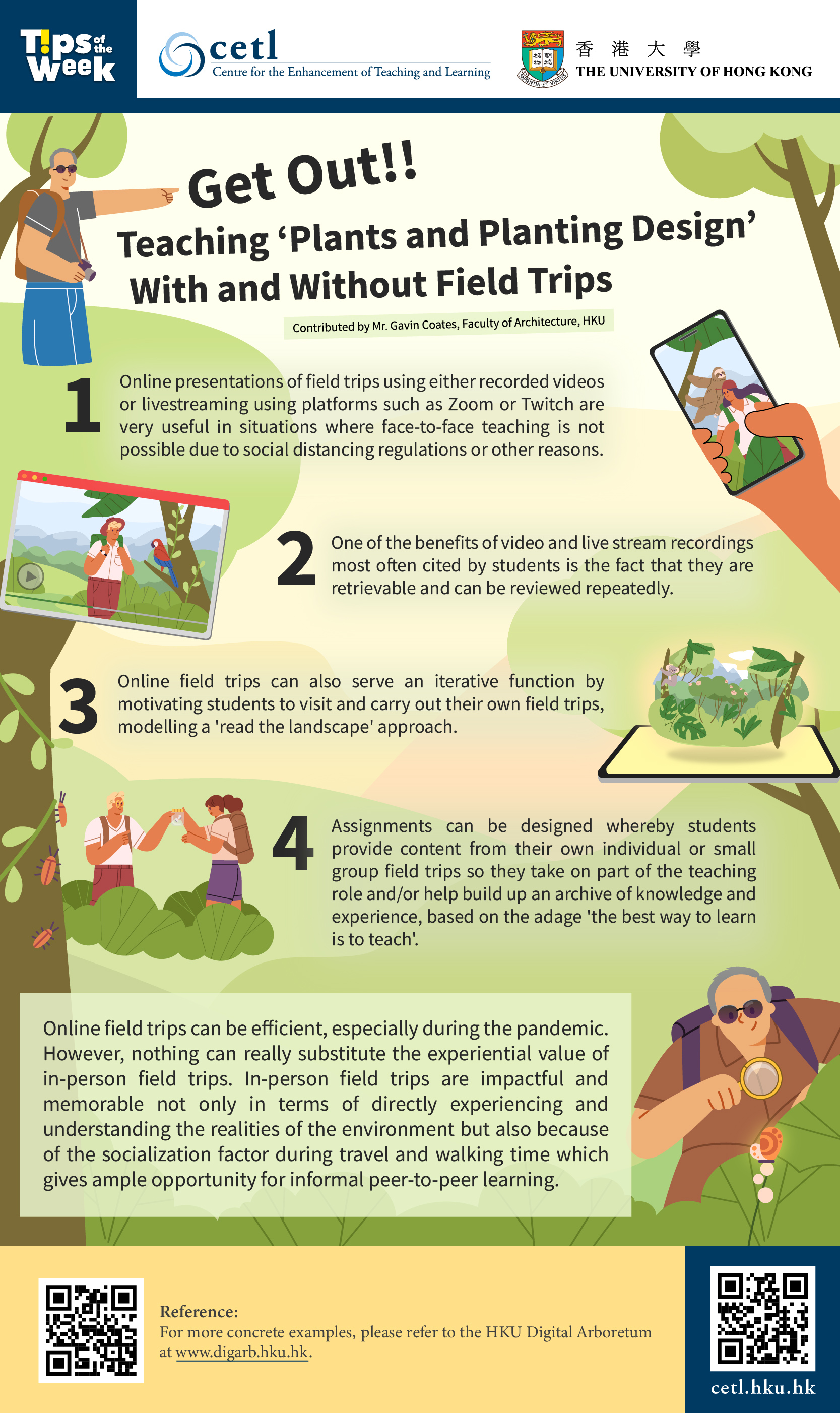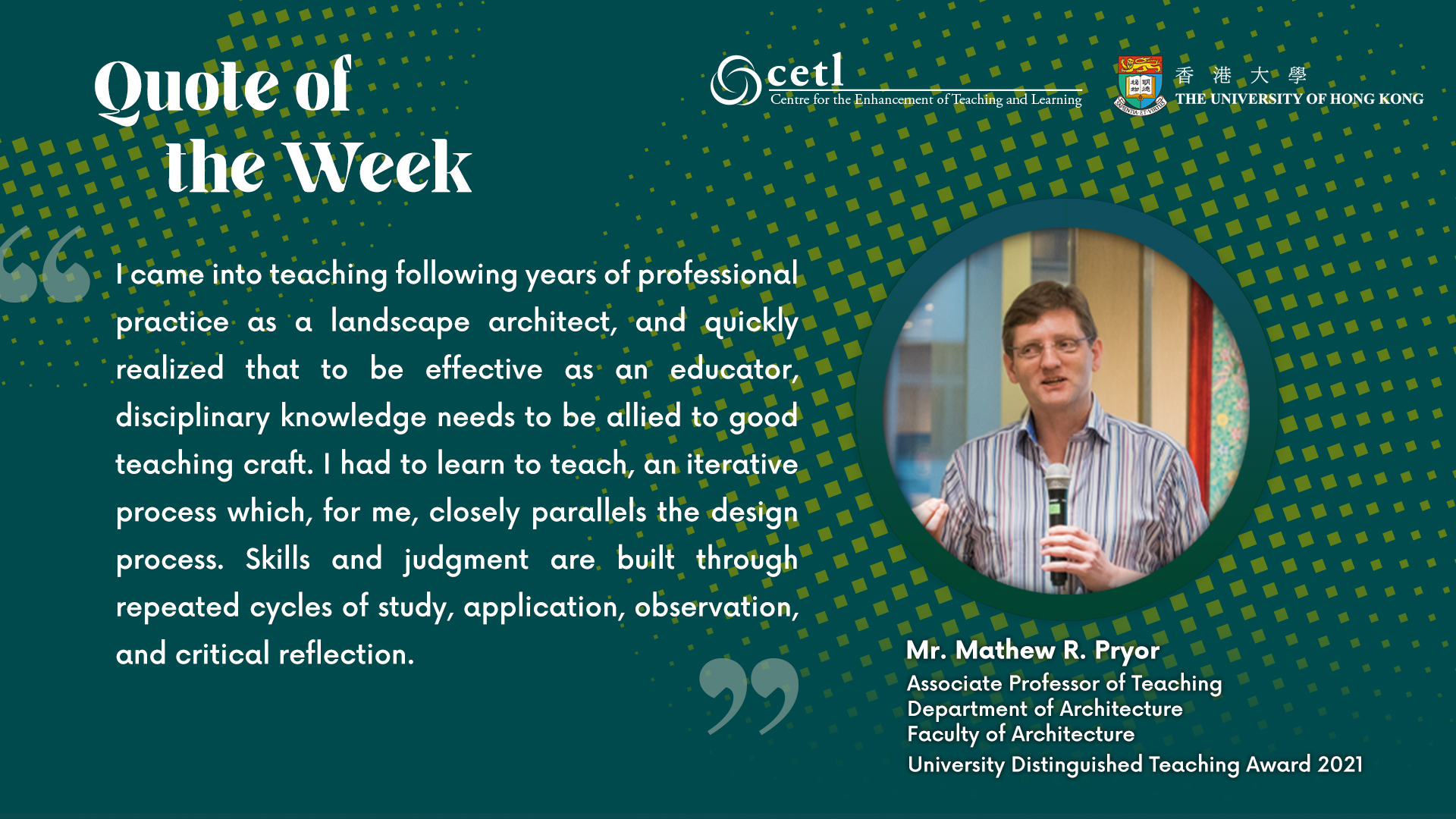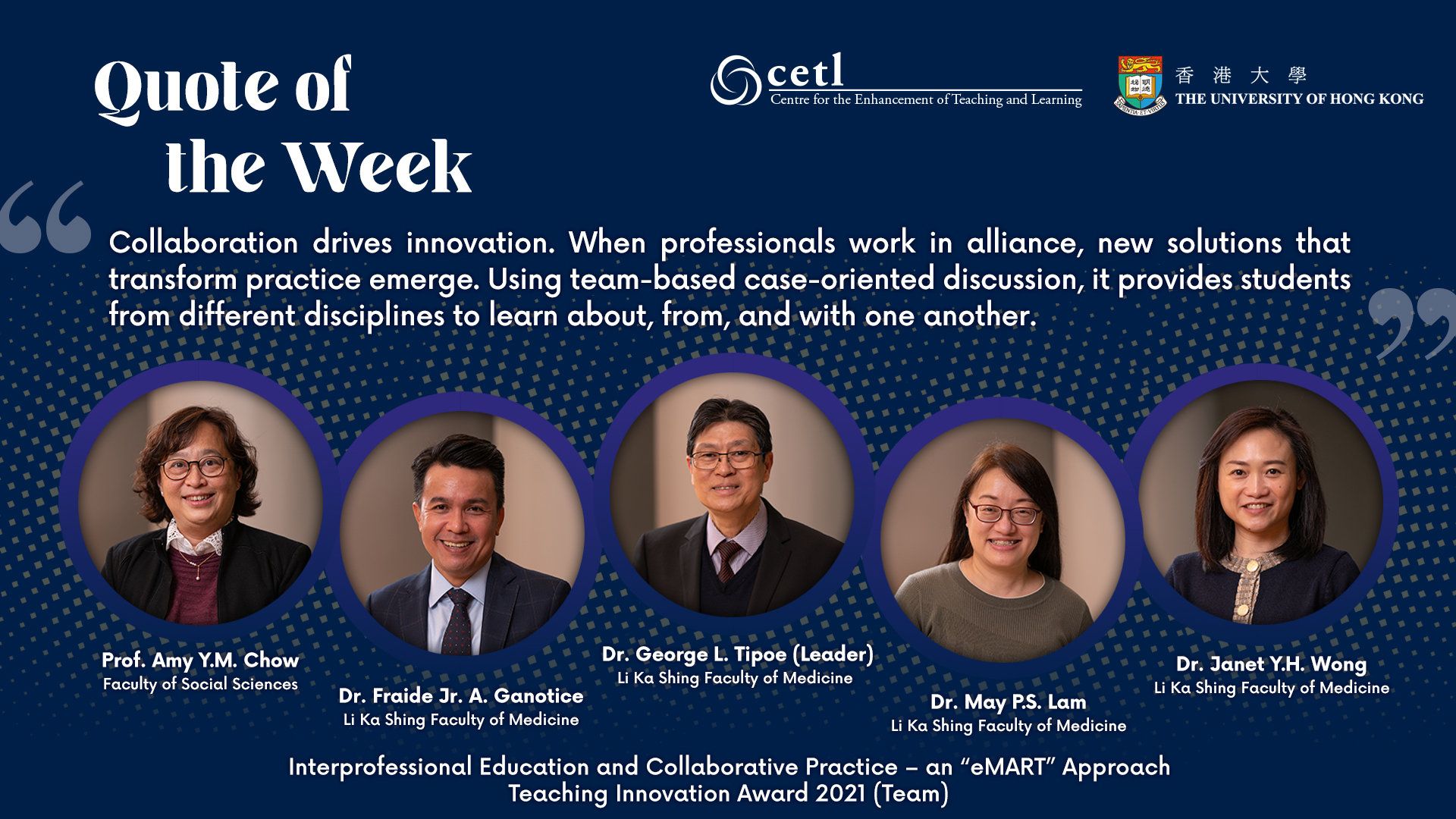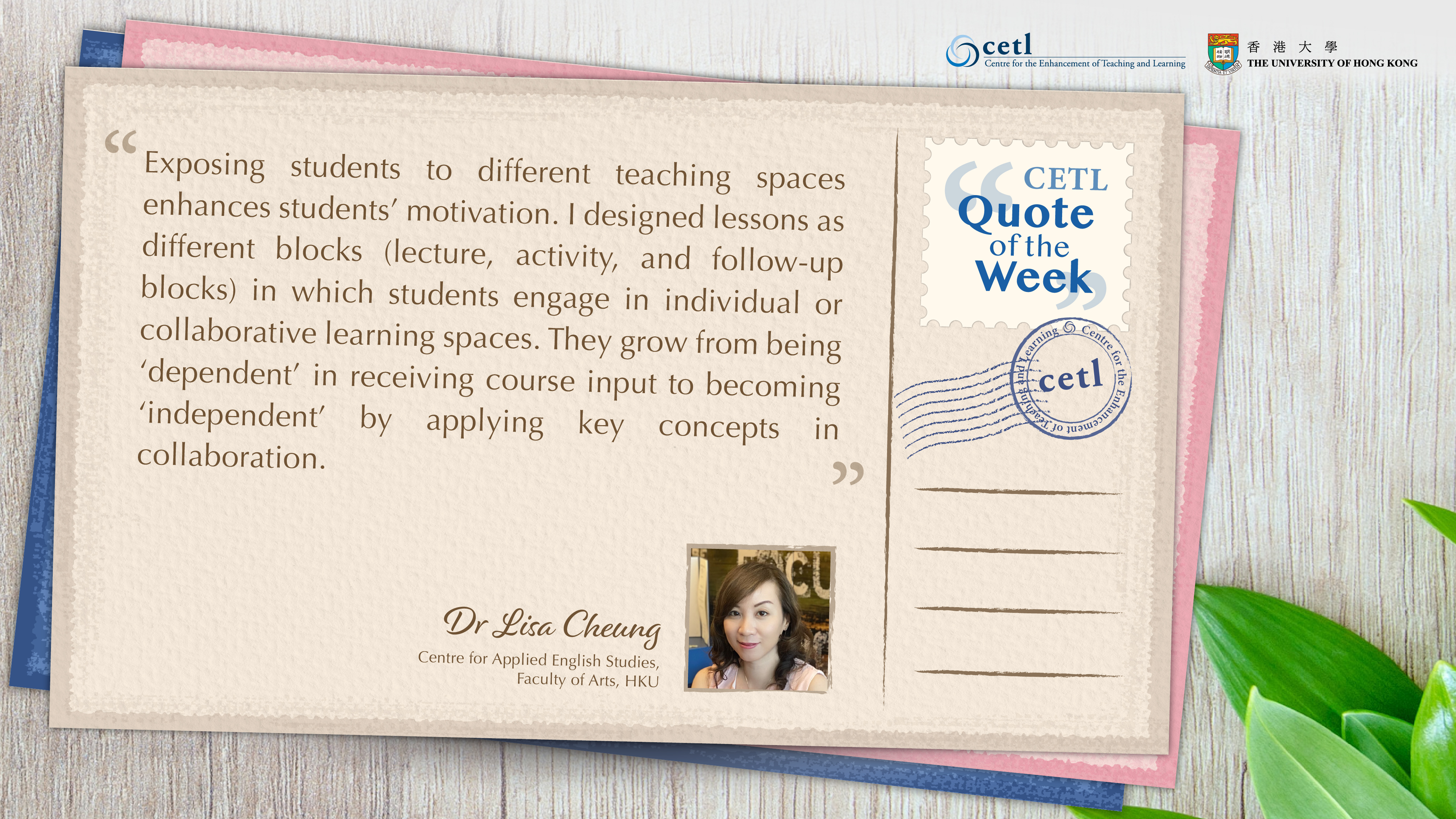
CETL Quote of the Week – Dr. Lisa Cheung
"Exposing students to different teaching spaces enhances students' motivation. I designed lessons as different blocks (lecture, activity, and follow-up blocks) in which students engage in individual or collaborative learning spaces. They grow from being 'dependent' in receiving course input to becoming 'independent' by applying key concepts in collaboration."
Dr. Lisa Cheung
Centre for Applied English Studies
Faculty of Art, HKU
Posting date: 10-Oct-2022




